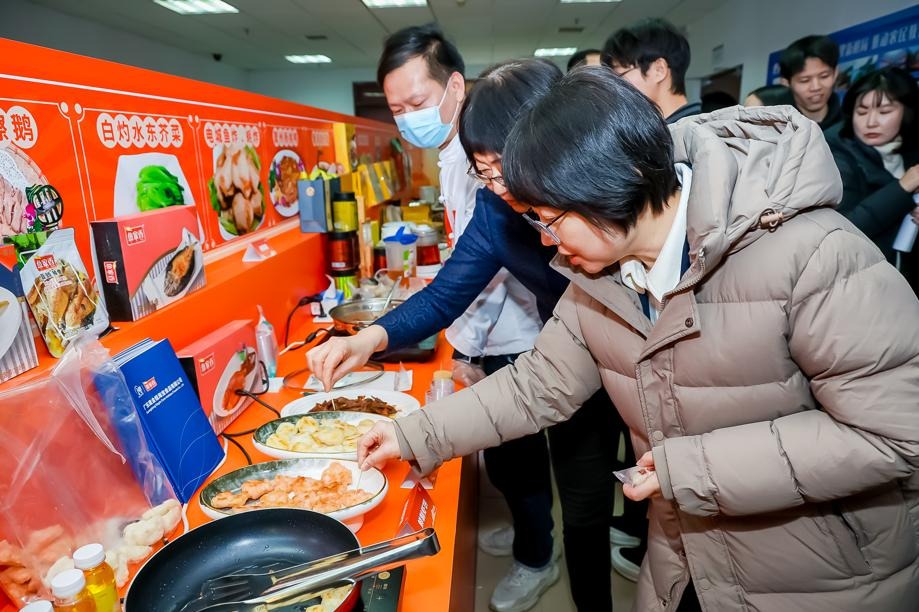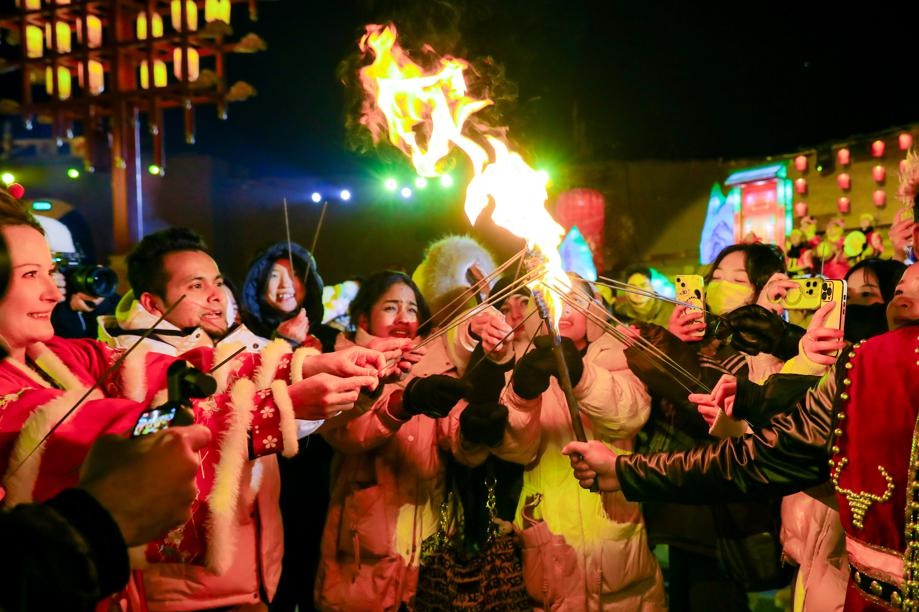Experts: Mainland team's aid key to HK's future pandemic control

The mainland support team for Hong Kong's COVID-19 universal testing program has laid a solid foundation for future pandemic control in the city, thanks to the valuable experience gleaned and the effectiveness of the mass testing, local medical experts and lawmakers said on Thursday.
They said the selfless efforts of the mainland medical team to help the city carry out over 1.5 million tests have touched the hearts of Hong Kong people.
In a meeting to convey local residents' gratitude toward the mainland's good Samaritans, 15 Legislative Council members and seven local medical experts said the mass testing program, made available with the aid of the mainland team, can provide a data reference, and more importantly, a social basis for the special administrative region government to develop and implement epidemic prevention measures in the future.
More than 500 mainland technicians arrived in Hong Kong in batches beginning on Aug 2 to provide assistance in the city's universal free, voluntary coronavirus-testing program. The program, which began on Sept 1, has been extended twice. It will run through Monday.
By 5 pm on Thursday, over 1.5 million people had been tested. At least 21 new infections were identified by the program, with two of them reported on Thursday. The government estimated the community has about 100 asymptomatic patients, given the low number of confirmed infections that the program has discovered.
Former food and health secretary Ko Wing-man said that the universal testing program not only helped break the invisible transmission chain in the 2-month-old third wave of COVID-19 infections but also served as a "rehearsal" for future local community testing. Local laboratories and medical workers had the opportunity to practice and gain experience for the next stage of anti-epidemic measures, and to strengthen Hong Kong's own nucleic acid testing capabilities, he said.
Ko said the local medical community is also thankful for the support from the mainland. Thousands of local medical practitioners were mobilized to help with the testing program, he said. All seven doctors visiting the team on Thursday worked on the front line and helped with sampling.
Regular testing may become part of ordinary people's lives in the future, said David Lam Tzit-yuen, a doctor who helped with sampling at one of the centers. The community now has a clearer understanding of mass virus testing and better awareness of cooperating in epidemic prevention, he said.
Lam said the program has enhanced the "all for one and one for all" spirit in the community. He added that the employees at citywide sampling centers had maintained "positive energy" while manning their posts and overcame all kinds of difficulties after they learned the mainland technicians had been working 12 hours a day.
Martin Liao Cheung-kong, a lawmaker in the Legislative Council and a barrister, said that the success of the community testing was crucial to Hong Kong's plans of resuming tourism, business trades, sports, and the landing of the much-expected "health code system", with which regional travel can begin.
Meanwhile, leaders of the mainland support team, on behalf of the mainland technicians, received thank-you cards from lawmakers and local residents.
Yu Dewen, head of the technician support team from Guangdong province, said technicians from the mainland have always been aware of the welcome and support from the majority of Hong Kong people.
In the remaining four days of the program, the mainland technicians will continue to spare no effort to test the samples collected under the universal testing program and provide the results to the Hong Kong public in a timely and accurate manner, he said.
Celine Chan Sum-ting, a 40-year-old clerk, also expressed her heartfelt gratitude to the mainland support team, saying its members "made the impossible possible".
Chan lives in Tsz Wan Shan, an area hard hit by the city's third wave of COVID-19 infections. She recalled that she had wanted a test previously, but with the mainland medical team's assistance, every resident can get a chance to be tested, she added. "I feel safer walking around my neighborhood now, without worrying about catching the virus," she said.
Jimmy Tso, a local taxi driver, said he is thankful for the central government and mainland support team's selfless dedication. Tso said there are simply not enough healthcare professionals in Hong Kong to conduct such large-scale virus testing. Only with the help of these mainland medical experts and the mass testing can Hong Kong effectively break the transmission chain so that the heavily hit economy can be revived, he added.
- Shanghai to enhance community healthcare centers
- Shanghai continues to enrich ecological environment
- Shanghai to enhance education reform aligned with social needs
- Shanghai adds 622,000 new urban jobs in 2024
- Shanghai ramps up elderly care amid aging population
- Shanghai ramps up urban renewal to boost living quality





































